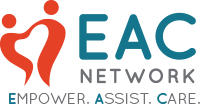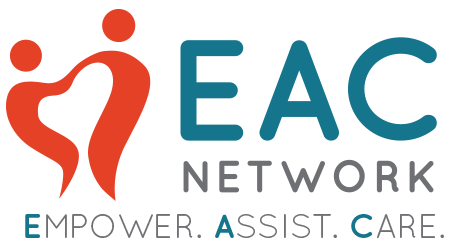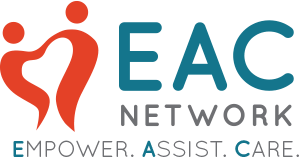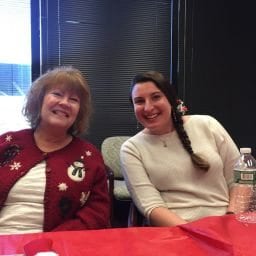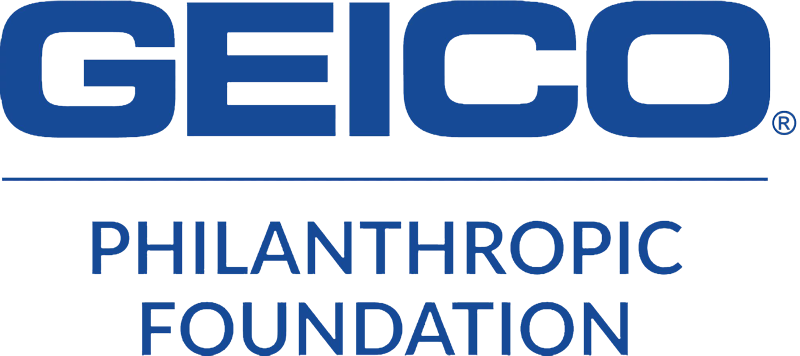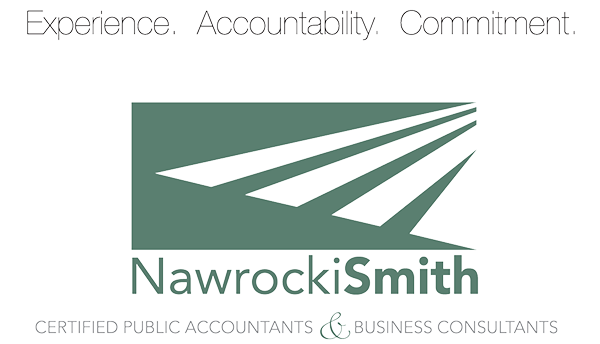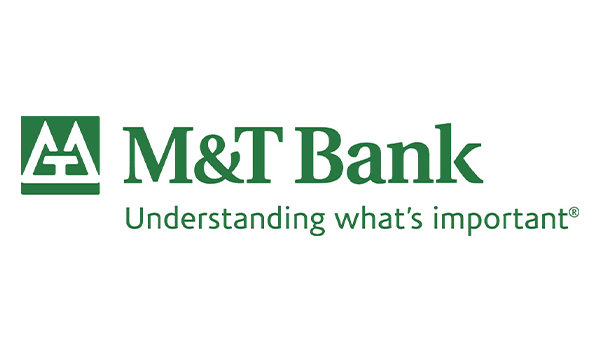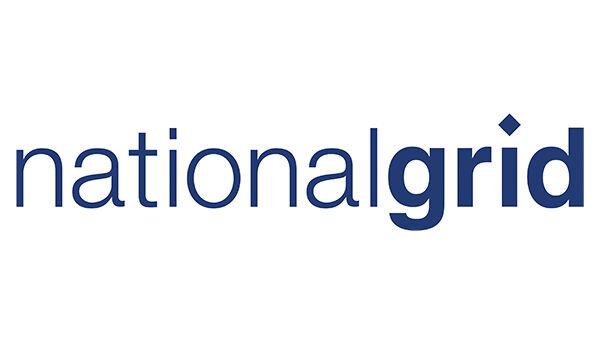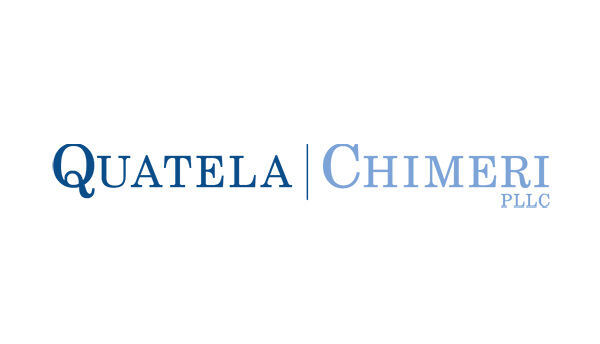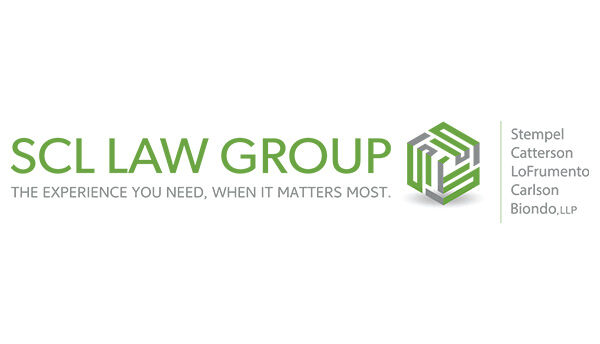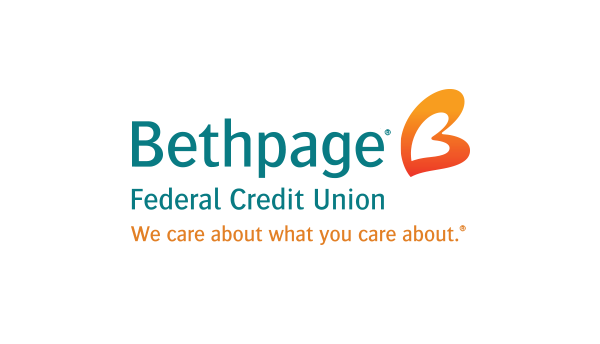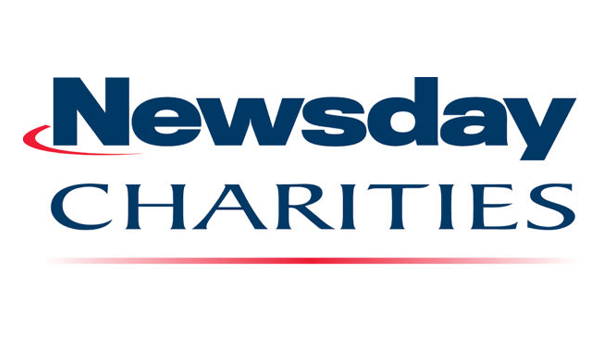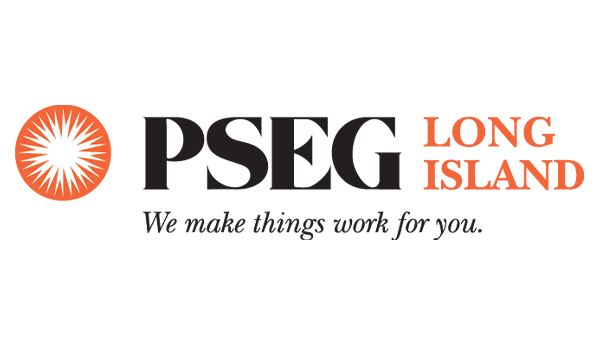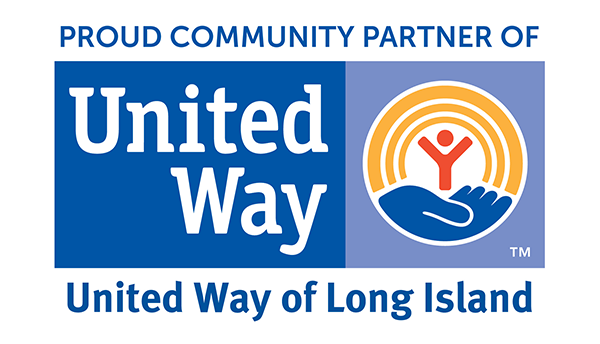GET TO KNOW OUR STAFF MEMBER, RENEE TAMMARO, IN TODAY’S SPOTLIGHT Q&A!
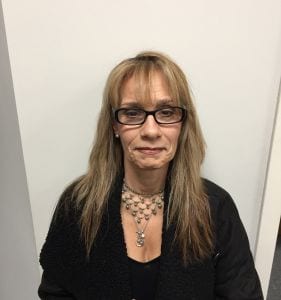 What is your position?
What is your position?
I am a Senior Care Coordinator I for EAC Network’s DSRIP Patient Activation Measure® (PAM®) and Health Home Care Coordination programs. As a care coordinator, my position is multifaceted. I provide case management to those who are Medicaid eligible and suffer from two or more chronic conditions. Qualifying diagnoses include all medical conditions, a chronic mental illness, HIV/AIDS, and those diagnosed as having co-occurring disorders. Together, the participant and case manager devise a client-centered care plan. The goal is to help my participants stay healthy through coordination and linkage to services and navigate the barriers that make it difficult to secure proper care. I wear many hats and try to assist my clients in any way I can. A recent addition to my responsibilities is the use of PAM surveys, a simple questionnaire, to help identify uninsured clients and hopefully connect them to necessary services and adequate care.
Why did you choose this profession?
I have always worked in a “helping “capacity with a diverse population. My earliest recollections in childhood echo this sentiment of belonging to a greater whole, and I think that comes with a sense of relationship and a kinship with others. And so, a desired responsibility to help and the rewards of doing so, are returned to me. I am the first one in my family to go into a helping profession.
How long have you been working with EAC Network?
Two years as of April 4, 2018.
What is your favorite part of your job?
I love the people who come to me, who are different and alike in so many ways. Each one has something unique or special to offer. They present challenges that have changed my train of thought, which I think is important: being able to appreciate their progress, but also provide support when they take two steps back.
What is the hardest part of your job?
The hardest part is having people understand that help is available and for them to be willing to help themselves. I can do what I have to do on my end, but ultimately the person has to choose a better path. It’s letting people know their lives can be different, be better, and that there can be a future… trying to recall their dreams, when they no longer remember what they were.
What aspect of your job do you wish people knew more about?
The many ways I can help. My clients and even those familiar with the program often forget the wide range of services I can provide or link them to.
Name one goal you have for the upcoming year.
My main goal is to find affordable, independent, housing resources. I believe our residence is a foundation, a place of solace and privacy. When individuals know they have a safe haven, a place to call home, it is from here that they can begin to explore other issues of concern. “Home” is a basic necessity where we plan, arrange, and process our futures.
Tell us about a client who deeply influenced you and how you do your job.
There is a gentleman who has a long history of mental health issues and substance use. His attendance in my program is sporadic, which is cause for concern during periods of absence. Living arrangements are always temporary, sometimes homeless, other times staying with friends. I was feeling a sense of frustration when he would complain about living conditions, lack of benefits, and blaming others for his present circumstances. When presented with the ways we could address these issues, he would not follow through and explain in detail why the options presented were not viable. There was a sense of futility and yet, he kept coming back. One day he called to let me know he had been to the Veterans Service Agency in East Meadow, where I had referred him. Though his discharge from the military was classified as “other than honorable,” he was immediately provided with pantry and thrift shop locations, a shelter option, and help for those who served. Additionally, there is discussion about a possible appeal of his discharge status, which would open the door to a multitude of services. He has also applied for disability through social security and keeps all scheduled appointments. After over a year of inaction, this man has taken many steps to change his life. It fostered the belief that we never give up on someone; we never know the moment when they will decide there is hope.
Name one of your hobbies.
Music appreciation. I love all genres and styles.
Would you encourage others to go into your profession?
Definitely. I think it is essential to be mindful of the welfare of others. This is what makes a better society of people.
What advice do you have for others interested in your profession?
Be dedicated and committed. Always be interested and open to what others can bring to the table.
Where do you see yourself in five years?
Still helping others in any way I can. Hopefully, to have the same passion, enthusiasm, and energy!
Is there anything else you’d like to say?
Remain open to the qualities others possess. Always understand your limitations, which allow the other person’s values, opinions, and feelings to be heard.
* * *
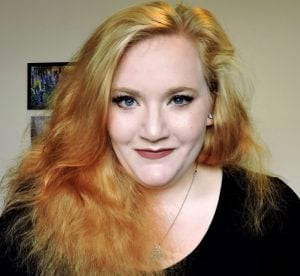 Sarah Muller is the Development & Marketing Assistant for EAC Network. She graduated from the University of Vermont with a B.A. in English.
Sarah Muller is the Development & Marketing Assistant for EAC Network. She graduated from the University of Vermont with a B.A. in English.
